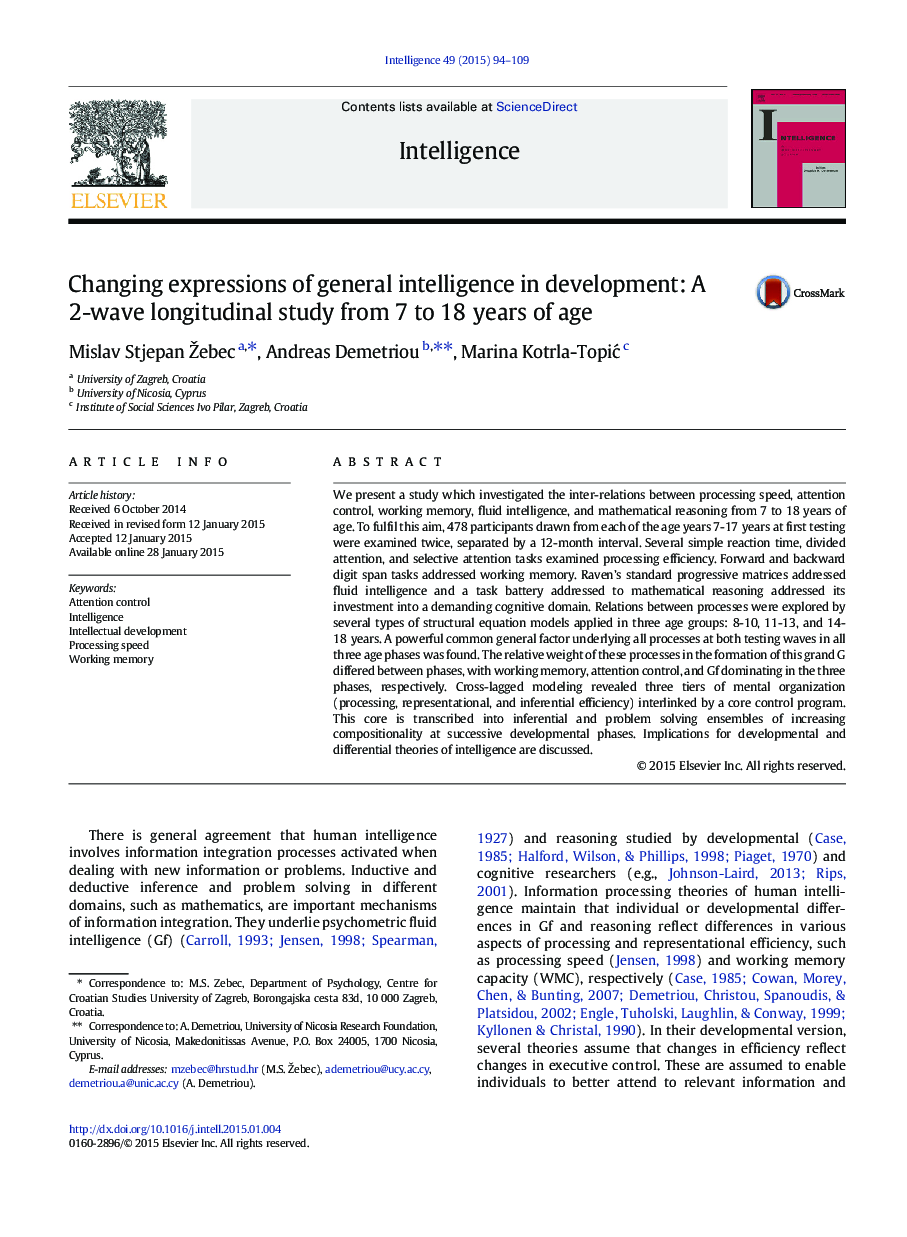| کد مقاله | کد نشریه | سال انتشار | مقاله انگلیسی | نسخه تمام متن |
|---|---|---|---|---|
| 929032 | 1474267 | 2015 | 16 صفحه PDF | دانلود رایگان |
• Relations between speed, attention, working memory, and intelligence were investigated.
• There is a general factor underlying all processes across age phases (8-10, 11-13, and 14-18 years).
• This factor is expressed via a different process in each phase.
• There are three tiers of mental organization (processing, representational, and inferential efficiency).
• Tiers are interlinked by a core control program transcribed into inferential ensembles of increasing compositionality.
We present a study which investigated the inter-relations between processing speed, attention control, working memory, fluid intelligence, and mathematical reasoning from 7 to 18 years of age. To fulfil this aim, 478 participants drawn from each of the age years 7-17 years at first testing were examined twice, separated by a 12-month interval. Several simple reaction time, divided attention, and selective attention tasks examined processing efficiency. Forward and backward digit span tasks addressed working memory. Raven’s standard progressive matrices addressed fluid intelligence and a task battery addressed to mathematical reasoning addressed its investment into a demanding cognitive domain. Relations between processes were explored by several types of structural equation models applied in three age groups: 8-10, 11-13, and 14-18 years. A powerful common general factor underlying all processes at both testing waves in all three age phases was found. The relative weight of these processes in the formation of this grand G differed between phases, with working memory, attention control, and Gf dominating in the three phases, respectively. Cross-lagged modeling revealed three tiers of mental organization (processing, representational, and inferential efficiency) interlinked by a core control program. This core is transcribed into inferential and problem solving ensembles of increasing compositionality at successive developmental phases. Implications for developmental and differential theories of intelligence are discussed.
Journal: Intelligence - Volume 49, March–April 2015, Pages 94–109
